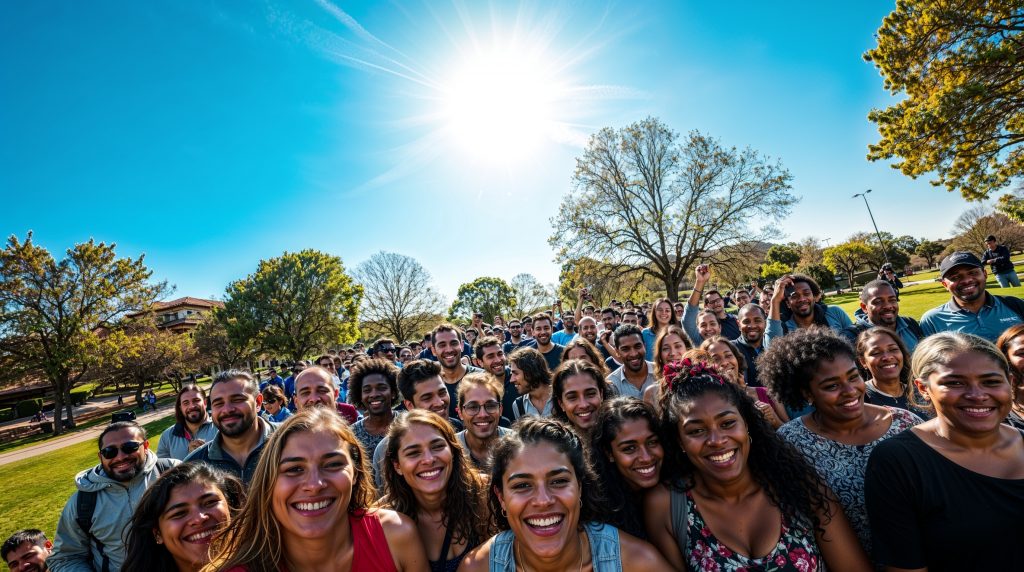
The Four C’s—Compassion, Cooperation, Consideration, and Communication.
Across the UK—and much of Europe—we are told that immigration is the problem. Politicians point fingers, newspapers fuel divisions, and neighbours begin to see each other as strangers. Nationalism rises, compassion falls, and communication breaks down.
It is easy to blame. It is harder to understand.
And yet, understanding is exactly what we need—not only for migrants, not only for the young, but also for those we often forget: the elderly, perhaps with someone older, someone carrying the weight of loneliness, or someone whose words come out sharper than they intend. These individuals are part of our communities as well, but in Western European culture, especially, they are often overlooked.
And let us not forget those struggling with mental health. Anxiety, depression, or trauma can shape the way people speak, sometimes making them appear angry, withdrawn, or irrational. Too often, society labels them as “difficult” rather than recognising that their behaviour may be a cry for connection.
It’s in these moments that the way we speak—and the way we listen—matters most. That is why I return to a simple but powerful framework: the Four C’s—Compassion, Cooperation, Consideration, and Communication.
Compassion
We cannot heal division without compassion. It is the act of looking beneath the surface—whether at the refugee fleeing war, the neighbour worried about change, the widowed elder whose frustration hides years of silence, or the person whose mental health struggles make their words harsher than they mean.
- Listen beyond words. Aggression often conceals grief, fear, or illness.
- Respond with kindness. A soft tone can calm a sharp tounge.
- Show compassion for yourself, too. Meeting others’ pain requires self-care.
Cooperation
Communities are built on cooperation, yet we are seeing more walls than bridges. True cooperation is not agreement on everything—it is finding ways to walk forward together.
- Find shared ground. Everyone longs for safety, belonging, and dignity.
- Keep dialogue open. Doors, once shut, rarely reopen.
- Work across generations and abilities. Include both the wisdom of elders and the voices of those living with unseen struggles.
Consideration
Consideration is pausing before reacting, before pointing blame at “them.” It is recognising that our words ripple into lives we may not see.
- Think of the human cost. Behind every headline is a family.
- Respect differences. Cultural, generational, and mental health diversity are strengths.
- Lead with empathy. Treat others as you’d hope to be treated in your own most vulnerable moment.
Communication
So much of today’s tension stems from broken communication. People shout, but few listen. Politicians use words as weapons. Communities fracture.
Healthy communication is the bridge out of division.
- Be clear. Confusion feeds fear.
- Be transparent. Trust grows with honesty.
- Resolve conflict with dialogue. Listening doesn’t mean agreeing, but it does mean valuing.
- Adapt. Speak in ways that reach different ages, cultures, and those who may find communication difficult due to mental health challenges.
Why This Matters Now
The problems we face—immigration, inequality, loneliness, mental health, nationalism—cannot be solved by anger alone. They demand human connection.
The Four C’s nurture:
- Better mental health. Loneliness eases when we are truly heard.
- Stronger relationships. Trust replaces suspicion.
- More compassionate societies. Diversity becomes enrichment, not a threat.
- Intergenerational bonds. The wisdom of elders and the energy of youth are both needed.
A Closing Reflection
The Four C’s are not about being perfect. They are about being present. They remind us that every angry word might mask loneliness, every defensive stance might conceal fear, every overlooked elder might still be waiting for someone to listen—and every outburst may be the voice of someone struggling silently with mental health.
At our dental practice, we see this every day. A patient may arrive anxious, withdrawn, or even sharp in their tone. But when met with compassion, consideration, cooperation, and clear communication, they leave lighter—because they were not only treated, but also understood.
In these divided times, let us hold fast to compassion, cooperation, consideration, and communication—for the young and the old, for migrants and neighbours, for those whose struggles are visible and those we may never see.
Because humanity means all of us—or it means nothing at all.
✨ Signed with hope,
A Fellow Human–Being
Share this:
- Click to share on X (Opens in new window) X
- Click to email a link to a friend (Opens in new window) Email
- Click to share on LinkedIn (Opens in new window) LinkedIn
- Click to share on Reddit (Opens in new window) Reddit
- Click to share on Tumblr (Opens in new window) Tumblr
- Click to share on Pinterest (Opens in new window) Pinterest
- Click to share on Pocket (Opens in new window) Pocket
- Click to share on Telegram (Opens in new window) Telegram
- Click to share on WhatsApp (Opens in new window) WhatsApp
Related
General Private Dental Prices
| Service | Price |
|---|---|
| Examination / Consultation | £70.00 |
| Scale and polish | from £70.00 |
| Dental hygiene appointment | £80.00 |
| X-ray | £15.00 |
| White filling | from £135.00 |
| Teeth whitening | £479.00 |
| Porcelain crown | from £650.00 |
| Veneers | from £695.50 |
| Dentures | from £850.50 |
| Root Canal Treatment | from £430.00 |
| Implant & Crown | from £2689.00 |
| Extraction | from £170.00 |
| Emergency Appointment | £130.00 |
Contact Us.
Hours & Info
09:00 - 17:00
Closed for lunch, 13:00 - 14:00
Categories
- Cosmetic Dentistry
- Dental Care Plans
- Dental Crowns and Bridges
- Dental Exams and Cleanings
- Dental Hygiene
- Dental Implants
- Dentures and Partial Dentures
- Emergency Dentistry
- Endodontics
- General
- General Dentistry
- Gum Disease Treatment
- health and wellbeing
- Invisalign
- NHS Dentist
- Save Money
- Teeth Whitening
- Tooth Extraction
- Toothache
- Toothpaste
To find out more, including how to control cookies, see here: Cookie Policy
Emergency?!
Is a dental emergency causing you pain or discomfort? Take action right away by contacting Reigate Dental Centre. Our office is open Monday through Saturday from 9 am to 5 pm. You can call us on 01737 224 870 or send us a message via the contact form below, and we’ll endeavour to respond as soon as possible.
Don’t wait with a dental emergency—the sooner you call and see us, the better. We’re committed to promptly treating any urgent dental issue with the highest-quality care and compassionately.



